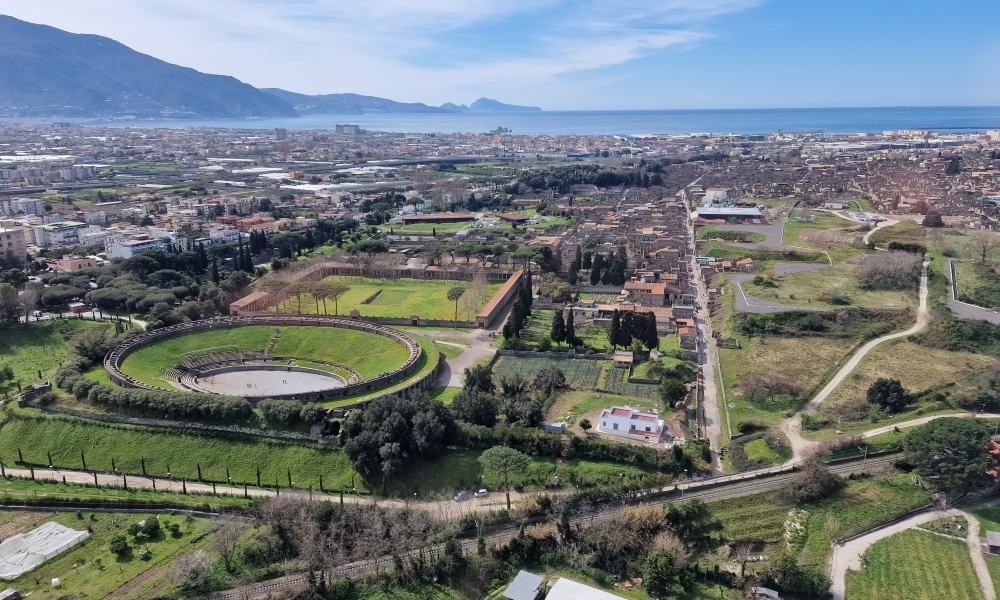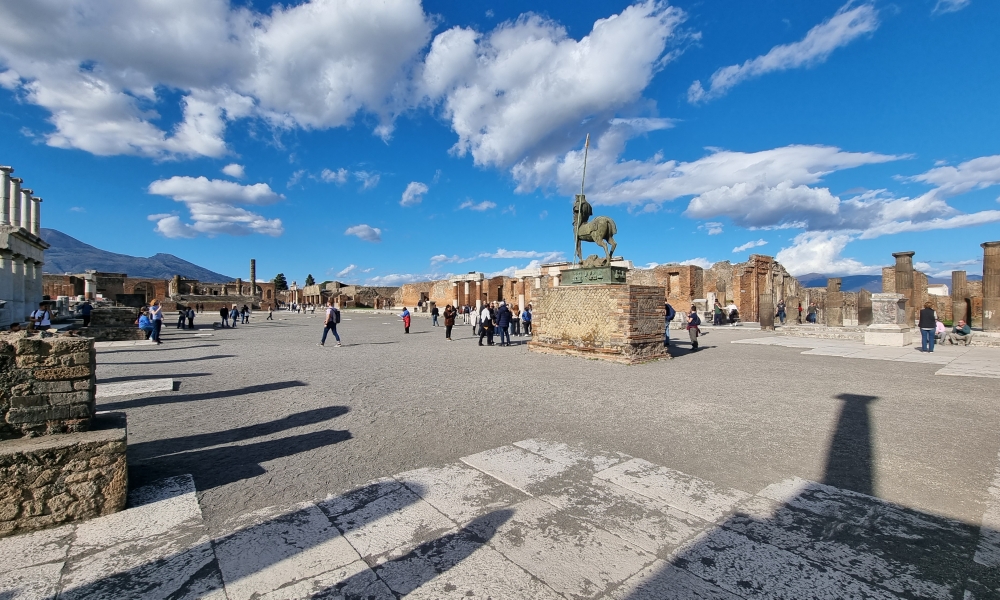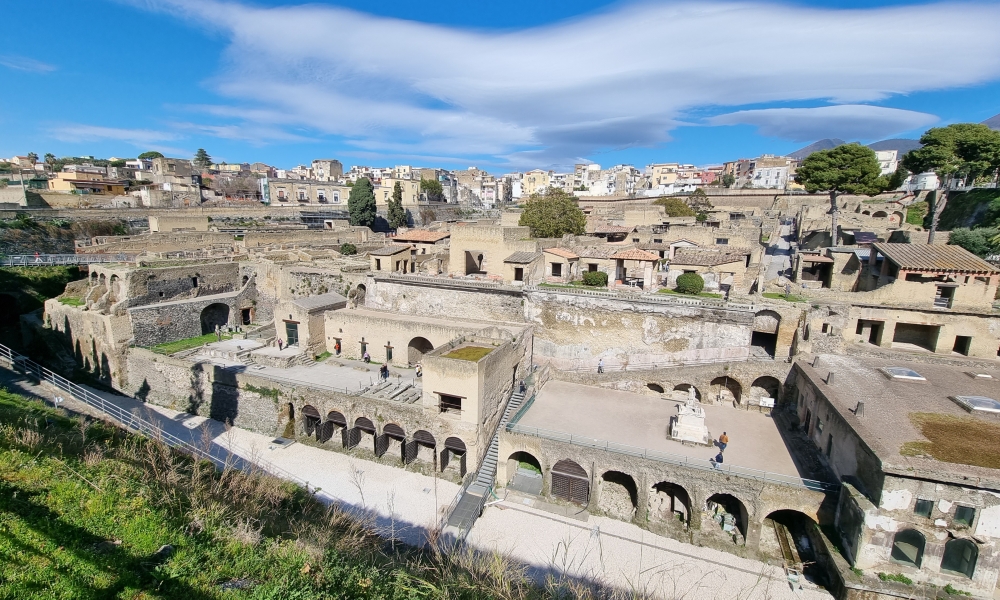Visiting the ruins of Pompeii and the ruins of Herculaneum
Recommended Season: All year
Starting Country: Italy
Recommended time: 2 days
While visiting this region, we couldn't pass without visiting the ruins of Pompeii and Herculaneum. Both cities were destroyed by the eruption of Mount Vesuvius in AD 79. You have all the information for each of them in the information below the map. To visit the ruins of Pompeii you will need a full day because they are very large and there is a lot to see. Compared to Herculaneum, they are much smaller and can be visited in 2 to 3 hours without rushing. The Herculaneum ruins we think are better preserved. But both are well worth visiting. Entry to Pompeii costs €21 p/person and Herculaneum €17 p/person. As we are traveling by motorhome, we based ourselves in a park in Pompeii, and we went on foot to visit the ruins, to visit the ruins of Herculaneum, we decided to buy a tour that cost 25€ per person (transport only) but we went more comfortably because they came to pick us up from the park and bring us.
Herculaneum and Pompeii Videos
Herculaneum and Pompeii Videos
The trip
Pompeii Ruins
Lat: 40.748181 - Lon: 14.481883
N: 40° 44' 53.4516 " E: 14° 28' 54.7788"
N: 40° 44' 53.4516 " E: 14° 28' 54.7788"
Pompeii was an ancient Roman city founded in the 6th century BC. in the Campania region of Italy, near Mount Vesuvius. The city prospered during Roman times, becoming an important commercial and cultural center.
During the year 79 AD, the city was completely destroyed by the eruption of Mount Vesuvius, which buried the city in ash and stone. The city was buried under a layer of volcanic ash and stone for centuries, until its rediscovery in the 18th century.
The city has been preserved under ash and stone, allowing archaeologists and historians to discover valuable information about ancient Roman life and culture. Pompeii is considered one of the most important archaeological sites in the world.
The ruins of Pompeii offer a fascinating glimpse into the daily lives of ancient Romans, including their homes, temples, shops and even public baths. The city also had a forum, where political and social meetings took place, and an amphitheater, where public shows were held.
Pompeii also had a strong artistic presence, with many paintings, mosaics and sculptures scattered throughout the city. Some of the artwork found in Pompeii depicts mythological themes, while others depict scenes from everyday life, such as workers in a vineyard or a group of friends chatting in a garden.
Nowadays, Pompeii is a major tourist destination, with millions of annual visitors. Tourists can stroll through the cobbled streets of the ancient city, visit the homes of wealthy and noble families, explore the Roman temples and baths, and admire the beautiful works of ancient art.
In short, Pompeii is a fascinating testament to the life and culture of the ancient Romans, offering an unrivaled glimpse into the region's historic past.
During the year 79 AD, the city was completely destroyed by the eruption of Mount Vesuvius, which buried the city in ash and stone. The city was buried under a layer of volcanic ash and stone for centuries, until its rediscovery in the 18th century.
The city has been preserved under ash and stone, allowing archaeologists and historians to discover valuable information about ancient Roman life and culture. Pompeii is considered one of the most important archaeological sites in the world.
The ruins of Pompeii offer a fascinating glimpse into the daily lives of ancient Romans, including their homes, temples, shops and even public baths. The city also had a forum, where political and social meetings took place, and an amphitheater, where public shows were held.
Pompeii also had a strong artistic presence, with many paintings, mosaics and sculptures scattered throughout the city. Some of the artwork found in Pompeii depicts mythological themes, while others depict scenes from everyday life, such as workers in a vineyard or a group of friends chatting in a garden.
Nowadays, Pompeii is a major tourist destination, with millions of annual visitors. Tourists can stroll through the cobbled streets of the ancient city, visit the homes of wealthy and noble families, explore the Roman temples and baths, and admire the beautiful works of ancient art.
In short, Pompeii is a fascinating testament to the life and culture of the ancient Romans, offering an unrivaled glimpse into the region's historic past.
Herculaneum Ruins
Lat: 40.804579 - Lon: 14.347467
N: 40° 48' 16.4844 " E: 14° 20' 50.8812"
N: 40° 48' 16.4844 " E: 14° 20' 50.8812"
Herculaneum is an ancient Roman city located in the Campania region of Italy. The city was founded in the 6th century BC. by the Osci, an ancient Italic tribe, and later conquered by the Romans in the 4th century BC.
During the eruption of Mount Vesuvius in AD 79, Herculaneum was one of the cities that was buried in volcanic ash and rock. However, unlike Pompeii, which was mostly covered in ash, Herculaneum was buried under a layer of hot mud and ash, which helped preserve many of the city's ancient buildings and artifacts.
For many years, the city remained forgotten and buried, until excavations began in the 18th century. During the excavations, many well-preserved structures were discovered, including houses, shops, temples and public baths.
Herculaneum is also famous for its amazing frescoes and mosaics, many of which are well preserved to this day. Many of Herculaneum's old houses have rooms with walls decorated with colorful paintings and elaborate stone mosaics.
The city is also famous for its well-preserved Roman thermal baths, which include swimming pools, massage rooms and saunas. Baths were an important social and leisure center in Roman times, and many people came to Herculaneum to enjoy its therapeutic waters.
In addition, the city was an important commercial center and produced a large amount of wine and olive oil. Herculaneum also had a busy port, which was used to trade goods and as a transport route to neighboring cities.
Today, Herculaneum is a major tourist attraction, offering a fascinating insight into ancient Roman life and culture. Tourists can stroll through the city's ancient streets, visit its houses, shops and public baths, and admire its beautiful paintings and mosaics.
In short, Herculaneum is a well-preserved ancient Roman city that offers a fascinating insight into ancient Roman life and culture. Its well-preserved structures, elaborate frescoes and mosaics, and its historical and cultural importance make it a must-see attraction for visitors.
During the eruption of Mount Vesuvius in AD 79, Herculaneum was one of the cities that was buried in volcanic ash and rock. However, unlike Pompeii, which was mostly covered in ash, Herculaneum was buried under a layer of hot mud and ash, which helped preserve many of the city's ancient buildings and artifacts.
For many years, the city remained forgotten and buried, until excavations began in the 18th century. During the excavations, many well-preserved structures were discovered, including houses, shops, temples and public baths.
Herculaneum is also famous for its amazing frescoes and mosaics, many of which are well preserved to this day. Many of Herculaneum's old houses have rooms with walls decorated with colorful paintings and elaborate stone mosaics.
The city is also famous for its well-preserved Roman thermal baths, which include swimming pools, massage rooms and saunas. Baths were an important social and leisure center in Roman times, and many people came to Herculaneum to enjoy its therapeutic waters.
In addition, the city was an important commercial center and produced a large amount of wine and olive oil. Herculaneum also had a busy port, which was used to trade goods and as a transport route to neighboring cities.
Today, Herculaneum is a major tourist attraction, offering a fascinating insight into ancient Roman life and culture. Tourists can stroll through the city's ancient streets, visit its houses, shops and public baths, and admire its beautiful paintings and mosaics.
In short, Herculaneum is a well-preserved ancient Roman city that offers a fascinating insight into ancient Roman life and culture. Its well-preserved structures, elaborate frescoes and mosaics, and its historical and cultural importance make it a must-see attraction for visitors.
Comments
Still has no comments for
Visiting the ruins of Pompeii and the ruins of Herculaneum
Leave your comment
Visiting the ruins of Pompeii and the ruins of Herculaneum
Leave your comment
Thank you
Other Routes
Rota das Barragens ao Sul do Rio Tejo
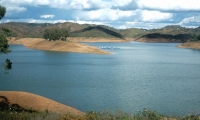
Itinerary for Any vehicle
Itinerary for: Portugal
Distance to travel: 749 km
Published by: Antonio Martins
O que visitar, o que fazer em Buenos Aires
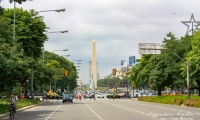
Itinerary for: Argentina
Published by: Angela Martins
Escapadinha para visitar Castelo de Vide e Marvão
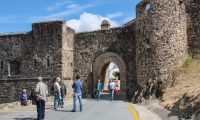
Itinerary for: Portugal
Published by: Toni Martins
Rota Romântica da Alemanha
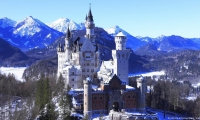
Itinerary for Any vehicle
Itinerary for: Germany
Distance to travel: 416 km
Published by: Toni Martins
Escapadinha de fim de semana a Elvas no Alentejo
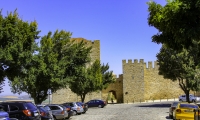
Itinerary for: Portugal
Published by: Toni Martins
Do Rio de Janeiro a Santos
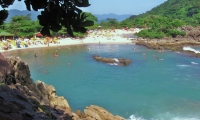
Itinerary for Any vehicle
Itinerary for: Brazil
Distance to travel: 589 km
Published by: Antonio Martins
Visitando Pisa em autocaravana (MotorHome)
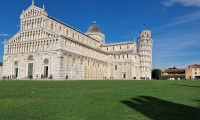
Itinerary for: Italy
Published by: Toni Martins
Rota de Buenos Aires a Ushuaia ao longo da Ruta 3
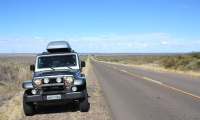
Itinerary for 4x4
Itinerary for: Argentina
Distance to travel: 3900 km
Published by: Antonio Martins
8 países (Republica Checa, Áustria, Eslováquia, Hungria, Croácia, Eslovénia, Itália, Alemanha)
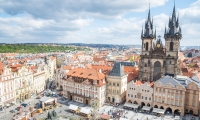
Itinerary for Any vehicle
Itinerary for: Czech Republic
Distance to travel: 3370 km
Published by: Antonio Martins
O que visitar, onde e quando visitar a Ilha do Pico
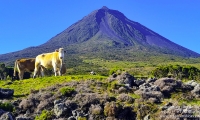
Itinerary for: Portugal
Published by: Toni Martins
Internet Satélite para autocaravana, como funciona e quanto custa

Itinerary for: Portugal
Published by: Toni Martins
Visitando Matera, Alberobello e Polignano a Mare
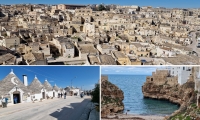
Itinerary for: Italy
Published by: Toni Martins
De Maputo à Ilha de Moçambique
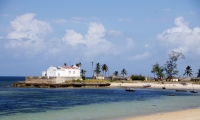
Itinerary for Any vehicle
Itinerary for: Mozambique
Distance to travel: 2994 km
Published by: Antonio Martins
Visitando a Toscana em carro de aluguer e autocaravana
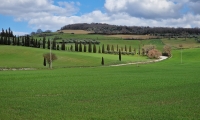
Itinerary for: Italy
Distance to travel: 200 km
Published by: Toni Martins
Rota dos Pirenéus Espanhóis
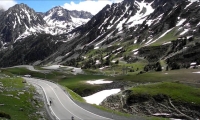
Itinerary for Any vehicle
Itinerary for: Spain
Distance to travel: 668 km
Published by: Toni Martins
Rota dos Castelos do Alentejo
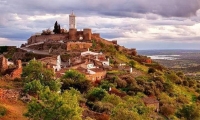
Itinerary for Any vehicle
Itinerary for: Portugal
Distance to travel: 431 km
Published by: Antonio Martins
Rota dos vinhos, das vilas e cidades mais bonitas da Alsácia
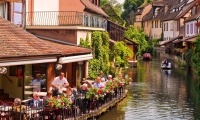
Itinerary for Any vehicle
Itinerary for: France
Distance to travel: 138 km
Published by: Toni Martins
Visitando as ruinas de Pompeia e as ruinas de Herculano

Itinerary for: Italy
Published by: Toni Martins
Roteiro dos Mais Belos Lagos de Itália
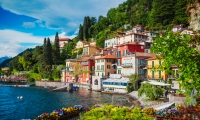
Itinerary for Any vehicle
Itinerary for: Italy
Distance to travel: 1305 km
Published by: Toni Martins
Roteiro do Paraguai e Bolívia incluindo a Rota da Morte
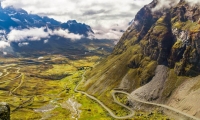
Itinerary for 4x4
Itinerary for: Paraguay
Distance to travel: 2667 km
Published by: Toni Martins
Rota do Rio Guadiana
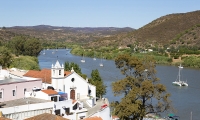
Itinerary for Any vehicle
Itinerary for: Portugal
Distance to travel: 309 km
Published by: Antonio Martins
Rota do Rio Douro
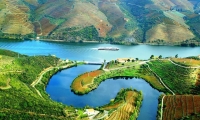
Itinerary for Any vehicle
Itinerary for: Portugal
Distance to travel: 300 km
Published by: Antonio Martins
Roteiro das praias e vilas históricas da região de Porto Seguro
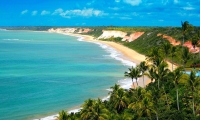
Itinerary for: Brazil
Distance to travel: 155 km
Published by: Toni Martins
Roteiro das Praias da Costa Vicentina
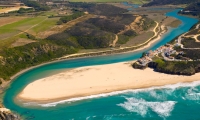
Itinerary for MotorHome
Itinerary for: Portugal
Distance to travel: 239 km
Published by: Antonio Martins
Roteiro Nápoles, Costa Amalfitana e Capri
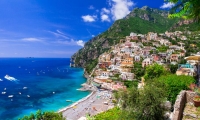
Itinerary for Any vehicle
Itinerary for: Italy
Distance to travel: 236 km
Published by: Toni Martins
Rota das Aldeias, Vilas e Cidades históricas do centro de Portugal
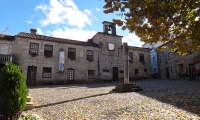
Itinerary for Any vehicle
Itinerary for: Portugal
Distance to travel: 595 km
Published by: Antonio Martins
Roteiro das vilas Medievais da Bretanha
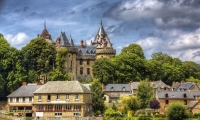
Itinerary for Any vehicle
Itinerary for: France
Distance to travel: 729 km
Published by: Toni Martins
Roteiro das vilas Medievais da Toscana
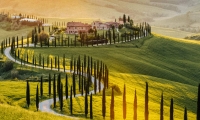
Itinerary for Any vehicle
Itinerary for: Italy
Distance to travel: 374 km
Published by: Toni Martins
Roteiro para visitar Cinque Terre em Autocaravana (MotorHome)
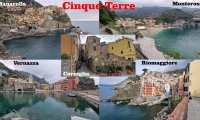
Itinerary for: Italy
Published by: Toni Martins
Visitando a Costa Amalfitana fazendo base em Pompeia
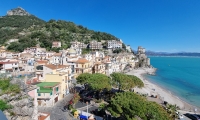
Itinerary for Moto
Itinerary for: Italy
Distance to travel: 140
Published by: Toni Martins
Why to book with
The best prices
Our partnerships with the world´s largest operators offer research on the best market prices.
More options
At Rotas Turisticos you can book the hotel, buy the air ticket, book the transfer from the airport to the hotel and vice versa, book the local excursions, rent the car, take travel insurance and consult the places to visit and where to go.
Holiday Tips & Destinations
Hundreds of holiday destinations with all the options that allow you to easily choose the destination that best suits your dream vacation.
Links
